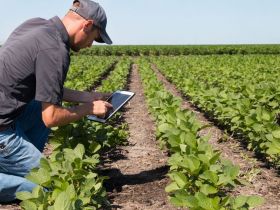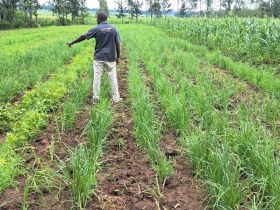Indian firm to issue first credits under new soil methodology
Quantum Commodity Intelligence – India-based joint venture company Grow Indigo plans to issue the first soil carbon credits under Verra's new VM0042 methodology over the next few weeks, even as many other projects ready their own issuances, executives Umang Agarwal and Pranav Komarraju said this week.
A total of 129 soil carbon projects are currently registering under the new protocol worth 110 million tonnes of carbon dioxide equivalent (tCO2e) of annual carbon credits supply, making it one of the largest project types under consideration in the Verified Carbon Standard (VCS).
India has by far the most supply in the pipeline, with 28% of total expected issuances, followed by China and Brazil.
The methodology is already diverse geographically, with 29 countries registering projects, highlighting the significant potential, say the sector's executives.
Umang Agarwal, Grow Indigo's head of carbon, said the company's first project plans to verify around 500,000 soil credits this year with an independent auditor and expects to issue the first batch over the next few weeks once US-based Verra gives the final nod.
The credits are 'hybrid' avoidance and removal types as they include avoided methane emissions from a move away from flooded rice to direct seeded rice (DSR) as well as increased removals through reduced tillage, said Agarwal.
Due to the recent nature of the methodologies, there has been little price discovery on soil carbon to date, apart from sales conducted in the US and pre-sales made by various developers, which have ranged between $30 and $50/tCO2e depending on the project and location, according to sources.
The supply of credits available was snapped up straight away by corporate buyers, while several developers have prevented sales in the spot market in a bid to keep pricing private and confidential.
Four projects
Grow Indigo was founded in 2018 by US soil carbon firm Indigo Ag and India-based Mahyco, one of the country's largest seeds producing companies.
It has applied for four projects under the VCS in different parts of India, and said it is already working in six states across 400,000 hectares, and plans to reach 1 million hectares by the end of the year.
The company, which operates both a biologicals input business for "green fertilisers" and a carbon credits arm, said it mainly deals with smallholder farmers, of which there are an estimated 150 million in the country.
A total of 75% of the project benefits will flow back to the farmers, according to Grow Indigo, which is keen to highlight the project's so-called co-benefits.
"We're a farmers' first company," said Agarwal.
"In flooded fields, women stand in the water every day, bending all day. This leads to a lot of reproductive health problems, back problems, that all goes away when you move to non-flooded rice," he also said.
"You also see an improvement in air and water quality because when you are not burning crop stubble and incorporating it in the field, there is less air pollution and there is less groundwater extraction from the project, so you are saving water," Agarwal said.
Grow Indigo said it has hired 100 staff who liaise daily with local farmers in order to assist and train them, while the proceeds of an $8 million fundraise announced earlier this year will help it grow its network further in India.
The company relies heavily on "digital outreach", which involves phone conversations and the exchange of what's app messages with local farmers, and has also launched classrooms to teach courses in sustainability.
"If you talk about methane and the environment, it doesn't stick with farmers," said Agarwal.
"You have to really explain how their income is going to improve, both from a soil health and a farmer economics perspective. That's how you start. And then the bonus is the positive environmental benefit," he added.
Grow Indigo said it currently works with rice, wheat, maize, sugarcane and cotton.
The company says it provides "holistic solutions for farmers and companies", including biological agri-inputs, a carbon crediting programme and scope 3 (supply chain) emission reduction services for food, beverage and apparel companies.



